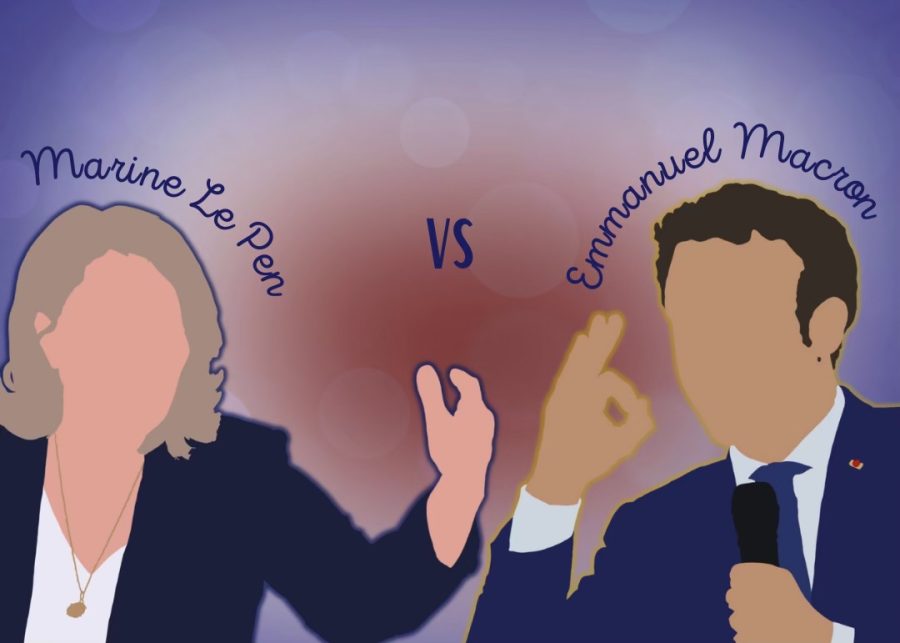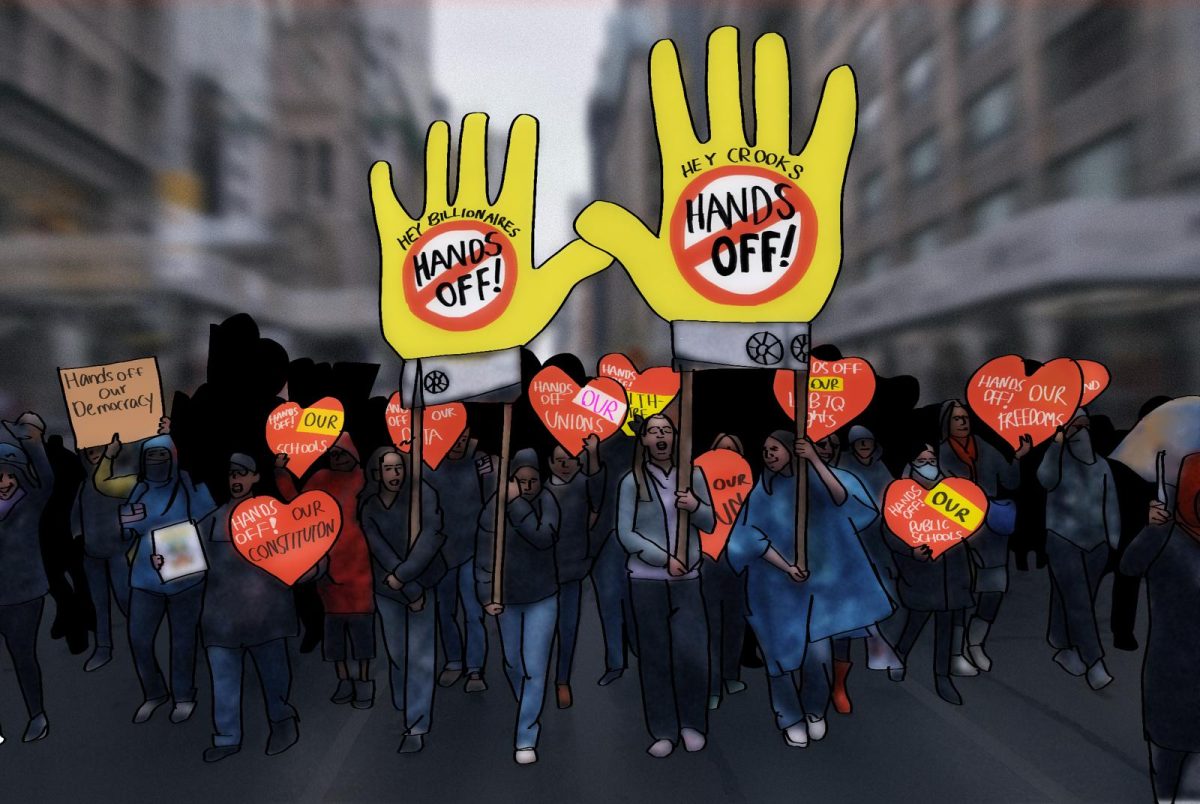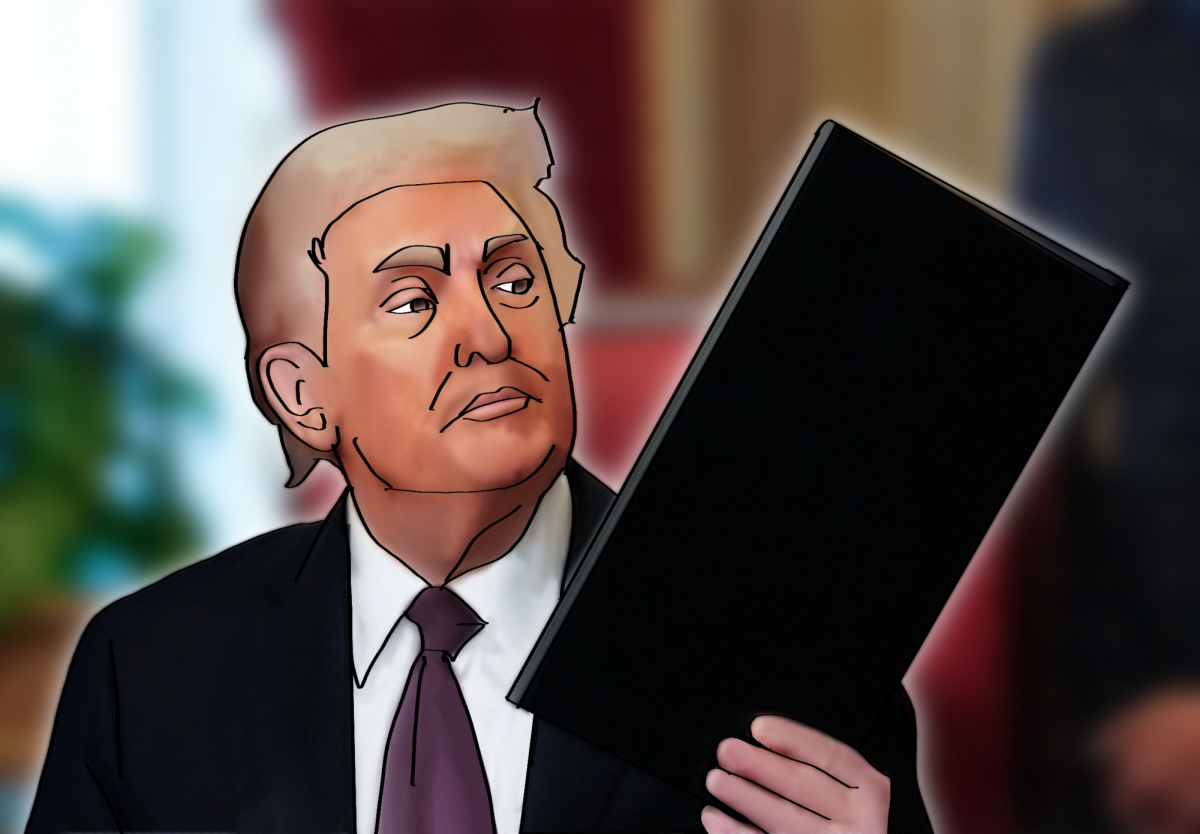French Elections: 2022 a Decisive Battle?
French President Emmanuel Macron is going head to head with Marine Le Pen in a fierce fight over French elections.
Apr 17, 2022
As of April 2022, there will be a new president in France, and, so far, the nation is tied between two candidates. Marine Le Pen and Emmanuel Macron have had around the same rankings in surveys and tallies regarding votes during the second round of the elections. Macron is the current president of France while Le Pen has a history of running for president, though she has never been elected. These are the same candidates that faced off back in 2016 when Macron was elected, but things could go very differently this time.
Though Le Pen is not the most popular, Macron has gathered a lot of negative sentiment since the beginning of his presidency, putting his adversary at an advantage. He has notably received criticism for his domestic policies, including tax cuts for the wealthy and is generally seen as a “president of the very rich”. Le Pen represents the far-right while Macron is a more tempered candidate, neither right nor left-leaning.
The results of the first round of the French presidential election have officially been announced, with current president Emmanuel Macron and far-right candidate Marine Le Pen proceeding to the second round of voting – what is called runoff. In France, the first round of a presidential election typically features about ten different candidates. If a candidate wins 50% or more of the vote, the candidate effectively becomes president; however, if that situation does not occur, the two candidates with the most votes qualify for the second round of voting.
Because the first round offers such a diverse range of candidates to choose from, it is often stated that people prioritize their top candidate in this round. On the contrary, in the second round, they are more focused on voting against their least favorite candidate. Though both candidates are polarizing figures, it is very possible that people will view Macron as a “safer” candidate in this round and vote for him because of Le Pen’s dangerous pro-Putin leanings and history of xenophobia and extreme nationalism.
Currently, Macron has a slight lead over Le Pen with 28% of the vote compared to the latter with about 23%. Macron wants to decrease the minimum pension age from 65 to 62 and maintain a globalist French foreign policy perspective in order to strengthen France’s commitment to the European Union.
Meanwhile, Le Pen’s positions on issues are consistent with the French extreme right; for example, she wants to completely halt government aid to foreign immigrants and ban the wearing of all Muslim headscarves in the streets. Her foreign policy is isolationist because she wants France to leave the European Union and stop putting sanctions on Russian oil. These ideas are simply ridiculous and would almost certainly make Putin stronger, which is the last thing that the world needs right now given the atrocities that Russia is committing in Ukraine.
“Marine Le Pen is definitely a populist and wants to expel all undocumented immigrants from France. I think her political stance is very similar to Trump and the tea party, while Macron’s politics resembles the moderate members of the Democratic Party,” Madame Rouit said.
Under Le Pen, the French nation we know and love – the one that harbors the city of love – would be very different. France would potentially close most of its borders, tightening security there. Le Pen echoes former American President Donald Trump in many of her opinions, particularly regarding immigration. When Trump announced his bid for candidacy, it was considered a joke only until it became a reality – France could have that same story.
Overall, her ways are what would be seen as Republican in the United States. She wants retirement relatively early as well as a decrease in taxes as necessary and wants to take measures to ensure that young people stay in France. This has been an active issue in France; many of the younger generations tend to leave the country to look for new opportunities in foreign countries, which is something Le Pen aims to change. Le Pen is a strong and opinionated candidate who is ready to fight to win these elections and make France stronger and more united. Perhaps her so-called promises are the reasons she is garnering such support.
Macron, on the other hand, is very mild in his plans. Though his program resembles that of Le Pen’s in sectors such as ecology or health, he has plans that would potentially increase taxes to help people who have been financially struggling in France. He is very outspoken about social issues and has plans to address issues like creating new measures which aim to limit bullying, whether online or elsewhere. In contrast with Le Pen, Macron’s foreign policies are more open and accepting of foreigners and he has no plans to leave the EU or NATO, unlike Le Pen.
What could be considered the most vital event that can alter this election is the war going on not too far from France. Le Pen has no plans to sanction Russia economically and has held talks with Putin in the past, putting her in a tough spot where she is unable to truly oppose the Russian president. In contrast, Macron has no plans to cancel the current sanctions on Russia and will continue to work to end this war, liberating the Ukrainians from the constant Russian aggression.
“If Le Pen was elected as president she would not only threaten France’s international relations, she would also become part of the problem regarding the war between Russia and Ukraine, by standing by without sanctioning Russia. Right now, France has a better chance of growing as a country with anyone other than her at its head and right now the only other choice is Macron,” sophomore Steffi Sarmiento-Mena said.
Macron and Le Pen’s stand-off is approaching with the second round of elections being on April 24, 2022, and so far neither party seems to have a lead over the other. Though Le Pen is far-right, many of the French people will choose to vote for her just to go against Macron, which can be explained by the strong anti-Macron sentiment. This reasoning could deeply affect France for the next few years. Still, the candidates are touring the country and meeting with the citizens to gather votes and hear the people’s voices.












